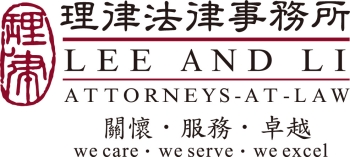On January 5 2017 in a copyright infringement case, the Taiwan Supreme Court held that the 'sole licence' agreed in a contract differs from the 'exclusive licence', merely restricting the copyright holder from sublicensing the already licensed rights to a third party, without excluding the copyright holder from exercising rights for its own purpose.(1)
The defendant at issue was the representative of company A, which rented out karaoke machines and provided relevant services, and was therefore responsible for acquiring licences for the songs used. Knowing that company B owned the copyright pertaining to lyrics or melodies of all songs at issue, the defendant still rented out the karaoke machines containing said musical works to a restaurant without the consent or licence of company B, thereby infringing its copyright.
The defendant was found guilty by the Taiwan New Taipei District Court,(2) which stated that it had infringed the copyright of company B by reproducing, without authorisation, the musical works with intent to rent them out. The defendant filed an appeal but was overruled by the Taiwan IP Court.(3) It then filed an appeal with the Supreme Court, claiming that at second instance the court had breached its legal responsibilities of due diligence because it had failed to investigate whether company B had exclusively licensed its copyright to company C and whether company B was still legitimately competent to file a complaint against the defendant. The Supreme Court dismissed the appeal.(4)
According to the Supreme Court, copyright licences include exclusive and non-exclusive licences. A non-exclusive licence enables the copyright holder to license its copyrights pertaining to the same work(s) to an unlimited number of parties, without excluding the copyright holder from exercising the same rights for its own purpose, or sublicensing the same rights to a third party for exploitation. However, an exclusive licence promises a monopoly and prohibits the original copyright holder from sublicensing the same rights to a third party for exploitation and even exploiting the same rights for its own purpose. The contract entered into by the parties will govern whether a licence in dispute is exclusive; if the parties did not expressly agree the particulars of the licence, it will be presumed to be a non-exclusive licence. The Supreme Court accepted the sole licence, as well as the exclusive and non-exclusive licences, on the grounds of the agreement between the two parties.
According to the licence contract presented to the courts at first and second instance, company B licensed company C the rights to reproduce the songs at issue to create musical instrument digital interface karaoke products for business use, and conferred on company C the rights of publication and renting out such products. However, the licence contract specified that company B granted company C a sole licence to reproduce the video and audio products and to distribute and rent out such products. The two parties agreed that during the period of the contract, in the event that a third party should reproduce the works at issue, or distribute or sell such reproduced works, without the authorisation of company C, company C should inform company B immediately and company B would seek legal action to prove the third party responsible for infringement. The Supreme Court considered that the aforementioned articles were sufficient to prove company B and company C did not agree an exclusive licence in the disputed licence contract and therefore the contract did not exclude company B from exercising its copyright or the right to instigate legal proceedings under its own name to exclude others' infringement. This differs from an exclusive licence, which excludes the copyright holder from not only sublicensing the same rights to a third party within the licensed scope, but also exercising licensed rights and copyright for its own purpose. As a result, company B non-exclusively licensed company C merely to reproduce the works at issue and rent out products containing such works and was therefore competent to file a complaint against the defendant's infringement on its copyright.
The Supreme Court therefore dismissed the appeal.
For further information on this topic please contact or Esther Lin at Lee and Li Attorneys at Law by telephone (+886 2 2715 3300) or email ([email protected]). The Lee and Li website can be accessed at www.leeandli.com.
Endnotes
(3) 2015-Xing-Zhi-Shang-Su-Zi-27.
This article was first published by the International Law Office, a premium online legal update service for major companies and law firms worldwide. Register for a free subscription.


